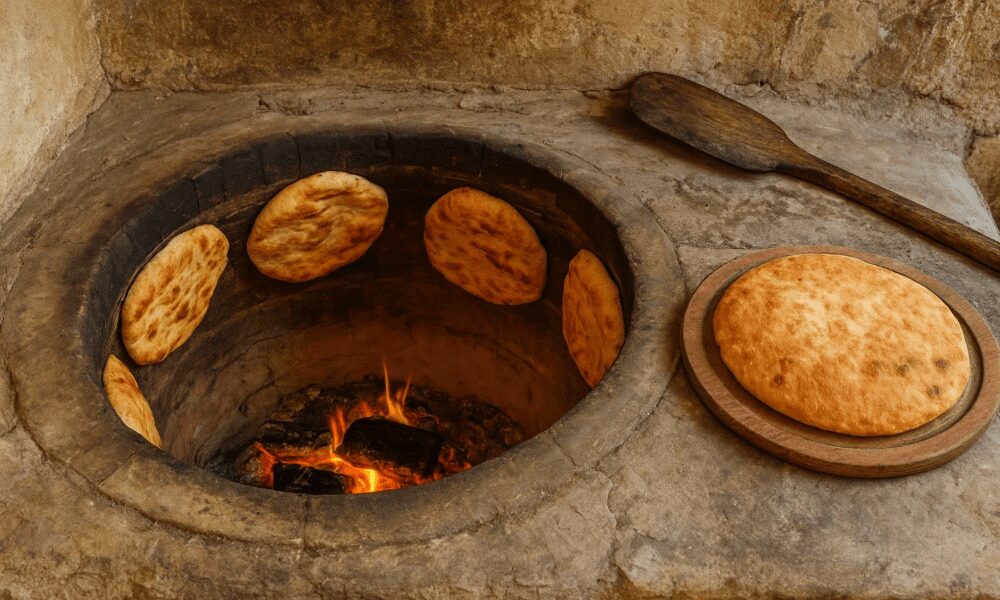
Food and Faith: The Sacred Connection Between Armenian Cuisine and Spirituality
Armenian cuisine is a whole cultural and spiritual heritage passed down through generations. Every dish has its own history, symbolism, and often a spiritual meaning. For example, festive dishes are prepared for special occasions — from Christmas to Easter.
Faith is closely intertwined with the process of preparing food. In the Armenian Church, the dining table is always considered a blessed place, and before serving food to guests, prayers are often recited. Gathering around the table emphasizes the values of love, harmony, and spiritual unity within the family.
It is believed that each recipe — whether halva, khashlama, dolma, or dough-based salads — carries energy and conveys the warmth and spiritual kindness of the family.
Seasonal ingredients are also important in Armenian cuisine. Vegetables and meats used in everyday dishes are chosen carefully, in tune with nature’s rhythms — which is itself a spiritual aspect. Seasonality means cooking with what nature provides at its most nourishing and healthy moment.
Family recipes passed from mother to daughter or father to son not only preserve flavor but also carry the spiritual legacy of ancestors. All of this shows that Armenian cuisine embodies two essential messages: preserving spiritual and family values, and passing love and kindness to future generations.
The Spiritual Meaning of Festive Dishes
In Armenia, traditional holidays are always accompanied by special dishes that hold not only taste but also symbolic value. For example, the Easter cakes and colored eggs symbolize new life and resurrection. The Christmas meal — with lavash, sujukh, and sweets — unites the family and expresses God’s grace.
The Armenian table also carries a sense of sacredness. Traditions such as offering bread and water to a stranger or beginning a meal with prayer are deeply tied to spiritual life.
Festive dishes are often prepared with patience and love; the cook’s intention and spiritual focus give the food extra energy and create lasting memories for generations. Thus, cooking becomes a kind of spiritual ceremony, where everyone partakes not only in physical nourishment but also in spiritual enrichment.
Armenian cuisine also plays an educational role. Children grow up hearing the stories behind dishes, participating in cooking rituals, and learning family values. Since many traditional dishes require several careful steps, children learn patience, diligence, and focus.
The kitchen becomes the space where love, faith, and culture are passed down. Traditional recipes and family secrets are handed from mothers to daughters, fathers to sons, creating a unique spiritual and cultural bond.
Moreover, the kitchen provides spiritual growth. During the preparation of certain festive dishes, children learn to pray and be grateful for the food given by God. This tradition fosters spiritual education, combining cooking and prayer — a hallmark of Armenian cuisine.
Beyond the family, Armenian cuisine also serves as a means of community connection. Community gatherings, holidays, and feasts bring people together, allowing them to share experiences and preserve national identity. Dishes become symbolic bridges connecting past and present, everyday life and celebration, body and soul.
Armenian cuisine is deeply spiritual; it expresses faith, family warmth, and national identity. Dishes are prepared with love, spirit, and humility, providing not only nourishment but also spiritual influence.
Ultimately, Armenian cuisine is not just food — it is a form of communication, a spiritual and cultural school where values are passed down through generations. It reminds us that every prepared dish can become not only a source of sustenance but also a symbol of connection between past, present, and future.
Armenian Cuisine in Modern Life
Today, as life becomes faster and more technologically demanding, Armenian cuisine reminds us of our fundamental values — family, faith, love, and tradition. It safeguards national identity and helps preserve it.
Despite the influence of fast food and global cuisines, traditional Armenian dishes continue to maintain their spiritual and cultural significance. Armenian cuisine is not only food but also a teacher of life, a spiritual guide, and a cultural treasure — it comes from the heart and speaks to the heart.
Cooking delicious dishes, preserving traditional recipes, and gathering with family around the table are unique symbols that remind us food is not only for the body but also nourishment for the soul.
Armenian cuisine is deeply connected with spirituality. It expresses faith, family warmth, and national identity. Armenian dishes are prepared with love, soul, and humility, which provide not only nutritional value but also spiritual impact.
As a result, Armenian cuisine is not just food — it is a means of communication, a spiritual and cultural school where the values of generations are transmitted. It reminds us that every prepared dish can become not only a source of sustenance but also a symbol of the connection between the past, the present, and the future.






